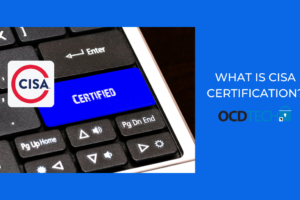With cyber threats growing more sophisticated every day, the need for experienced cybersecurity consultants has never been greater. As companies lean more heavily on digital tools and infrastructure, protecting sensitive data has become a business imperative. Today’s cybersecurity experts play a vital role, guiding organizations through an increasingly complex threat landscape and helping them build stronger, safer digital environments.
However, stepping into the role of a cybersecurity consultant requires more than just technical know-how. It demands a strategic mindset, an understanding of the business’s unique needs, and the ability to foresee and mitigate potential risks. This article will explore the path to becoming a cybersecurity consultant, detailing the skills, qualifications, and insights necessary to thrive in this demanding profession. We will also demystify the role of a cybersecurity expert and the value they bring to organizations striving to protect their digital assets.
Understanding the Role of a Cybersecurity Consultant
The primary role of a cybersecurity consultant is to protect an organization’s digital assets from cyber threats. This involves assessing vulnerabilities, implementing security measures, and ensuring compliance with legal and regulatory requirements. Cybersecurity consultants serve as the frontline defense for businesses, helping them navigate the intricate world of digital security. They act as advisors, helping businesses develop robust security strategies tailored to their specific needs.
Furthermore, cybersecurity consultants are responsible for staying abreast of the latest threats and security technologies. Their role extends beyond mere protection; they are educators, guiding organizations on how to implement a culture of security awareness among employees. By doing so, they ensure that businesses are not only prepared for current threats but are also resilient against future challenges.
What Does a Cybersecurity Expert Do?
A cybersecurity expert performs a wide range of tasks, including:
- Risk Assessment: Identifying potential vulnerabilities and threats to an organization’s information systems. This involves evaluating the current security measures in place and determining their effectiveness in mitigating risks.
- Security Planning: Developing and implementing security strategies and policies. This requires a deep understanding of the organization’s goals and the potential risks that could impact its operations.
- Incident Response: Responding to security breaches and mitigating damage. Quick and efficient response is crucial to minimize the impact of any security incident.
- Compliance Auditing: Ensuring that an organization’s security practices adhere to industry standards and regulations. This involves regular checks and updates to security protocols to ensure ongoing compliance.
- Security Training: Educating employees on best practices for maintaining cybersecurity. By fostering a culture of security awareness, organizations can significantly reduce the risk of human error leading to security breaches.
In addition to these core responsibilities, cybersecurity experts often engage in continuous monitoring of systems and networks. They use advanced tools and software to detect anomalies and potential threats, ensuring that any issues are addressed before they can escalate. Their role is not static; it evolves with the changing landscape of cyber threats, requiring them to be both proactive and reactive in their approach.
Essential Skills and Qualifications
Becoming a cybersecurity consultant requires a blend of technical expertise, analytical skills, and industry knowledge. Here’s what you need to focus on:
Educational Background
Most cybersecurity consultants hold a degree in computer science, information technology, or a related field. These programs provide a solid foundation in understanding the complexities of digital systems and the potential vulnerabilities they may harbor. Advanced degrees or certifications can further enhance your qualifications and credibility, opening doors to higher-level positions and specialized roles within the field.
Moreover, educational programs often offer opportunities for hands-on experience through labs and projects, which are invaluable in understanding real-world applications of theoretical knowledge. Some universities also offer specialized courses in cybersecurity, focusing on areas such as ethical hacking, digital forensics, and network security, providing a more targeted education for aspiring consultants.
Technical Proficiency
A deep understanding of network security, cryptography, and data protection is essential. Familiarity with firewalls, intrusion detection systems, and security protocols will equip you with the necessary tools to combat cyber threats. Additionally, proficiency in coding languages such as Python, Java, and C++ can be incredibly beneficial, as these skills enable you to develop and understand security software and tools.
Beyond technical skills, cybersecurity consultants must be adept at problem-solving and critical thinking. The ability to analyze complex data and identify potential security issues is crucial for implementing effective security measures. This analytical approach is vital in developing strategies that are both comprehensive and adaptable to the ever-evolving landscape of cybersecurity threats.
Certifications
Certifications are crucial in establishing your expertise. Consider obtaining certifications such as:
- Certified Information Systems Security Professional (CISSP): This certification demonstrates your ability to design, implement, and manage a best-in-class cybersecurity program.
- Certified Ethical Hacker (CEH): This certification validates your skills in identifying vulnerabilities and weaknesses in target systems.
- Certified Information Security Manager (CISM): This is designed for individuals who manage, design, and oversee an enterprise’s information security.
- CompTIA Security+: This is an entry-level certification that covers essential principles for network security and risk management.
These certifications demonstrate your commitment to the field and validate your skills to potential employers. They are recognized globally and often serve as a benchmark for employers seeking qualified cybersecurity professionals. Additionally, the process of obtaining these certifications often includes rigorous exams and training, ensuring that certified individuals possess a high level of competency and dedication to the field.
Gaining Experience in Cybersecurity
Experience is invaluable in the cybersecurity realm. It not only hones your skills but also provides practical exposure to real-world challenges. Theoretical knowledge forms the backbone of understanding, but hands-on experience is what truly prepares you for the complexities of this field.
Entry-Level Positions
Start your career in entry-level positions such as a security analyst or network administrator. These roles offer practical experience and help you build a foundation in cybersecurity. Working in these positions allows you to gain an understanding of the daily operations of IT security, from monitoring networks to implementing security measures.
In these roles, you will also have the opportunity to work closely with experienced professionals, learning from their expertise and gaining insights into advanced cybersecurity practices. This foundational experience is crucial for developing the skills and confidence needed to tackle more complex challenges as your career progresses.
Internships and Apprenticeships
Participating in internships or apprenticeships with established cybersecurity firms can provide hands-on experience and mentorship from seasoned professionals. These opportunities often expose you to a variety of tasks and projects, enabling you to apply your theoretical knowledge in practical situations.
Internships and apprenticeships also offer the chance to build professional connections and gain insights into the industry. Working alongside experienced consultants provides invaluable lessons in navigating the challenges and nuances of cybersecurity work, helping you refine your skills and develop a deeper understanding of the field.
Continuous Learning
The cybersecurity field is dynamic and ever-changing. Stay updated with the latest trends and technologies by attending workshops, webinars, and industry conferences. These events provide a platform to learn from experts, discover new tools, and understand emerging threats.
Subscribing to cybersecurity publications and forums can also keep you informed. Engaging with these resources allows you to stay ahead of the curve, ensuring that your skills and knowledge remain relevant in a fast-paced industry. Continuous learning is not just about acquiring new information; it’s about adapting to the evolving landscape of cybersecurity and being prepared to tackle new challenges as they arise.
Building a Network and Reputation
In the cybersecurity industry, networking is as crucial as technical skills. Establishing connections with peers and industry leaders can open doors to new opportunities and collaborations. Networking not only expands your professional circle but also provides a support system of like-minded individuals who can offer advice and share experiences.
Join Professional Organizations
Organizations such as the Information Systems Security Association (ISSA) and the International Association of Privacy Professionals (IAPP) offer networking opportunities, resources, and events for cybersecurity professionals. These organizations often host conferences, webinars, and seminars, providing a platform to connect with industry experts and stay updated on the latest developments.
Membership in professional organizations also enhances your credibility and demonstrates your commitment to the field. It provides access to a wealth of resources, including industry reports, research publications, and training programs, all of which can contribute to your professional growth and expertise.
Contribute to the Community
Sharing your knowledge through blogs, articles, and presentations can establish you as a thought leader in the field. By contributing to the community, you not only showcase your expertise but also engage with a broader audience, fostering discussions and exchanging ideas.
Engaging with online cybersecurity communities can also enhance your visibility and credibility. Participating in forums, discussion groups, and social media platforms allows you to connect with other professionals, learn from their experiences, and contribute your insights. This active involvement in the community can significantly boost your reputation and open up new opportunities for collaboration and advancement.
The Future of Cybersecurity Consulting
As businesses continue to digitize, the demand for cybersecurity consultants is expected to grow exponentially. The increasing complexity of cyber threats necessitates specialized expertise to safeguard sensitive information. Cybersecurity consultants play a vital role in ensuring that businesses can navigate this digital transformation securely.
The Impact of Emerging Technologies
Technologies like artificial intelligence, blockchain, and the Internet of Things (IoT) are reshaping the cybersecurity landscape. These technologies introduce new vulnerabilities and challenges that require innovative security solutions. Consultants must adapt to these changes and develop strategies to address new vulnerabilities, ensuring that their clients remain protected in an ever-evolving digital environment.
The integration of these technologies into business operations also offers opportunities for cybersecurity consultants to enhance security measures. By leveraging AI and machine learning, consultants can develop predictive models and automate threat detection, improving the efficiency and effectiveness of security protocols.
The Role of Cybersecurity Consulting in Business Strategy
Cybersecurity consulting is no longer just about defense; it’s an integral part of business strategy. As businesses increasingly rely on digital operations, cybersecurity becomes a critical component of their overall success. Consultants must align security measures with organizational goals and ensure that security practices support business growth.
By integrating cybersecurity into the broader business strategy, organizations can proactively address potential threats and reduce the risk of disruptions. Cybersecurity consultants play a crucial role in this process, helping businesses develop comprehensive security frameworks that enable them to operate confidently in the digital age.
Embarking on a career as a cybersecurity consultant requires dedication, continuous learning, and a passion for protecting digital assets. By acquiring the right skills, gaining practical experience, and building a professional network, you can establish yourself as a trusted advisor in the cybersecurity field. The journey may be challenging, but the rewards of safeguarding organizations and their data are immense.
The role of a cybersecurity consultant is both challenging and rewarding, offering the opportunity to make a significant impact on the safety and security of organizations in an increasingly digital world. As you embark on this career path, remember that your expertise not only safeguards data but also empowers businesses to thrive in the digital age. Your efforts contribute to building a secure digital ecosystem where innovation and growth can flourish without the fear of cyber threats.
Protect your organization with expert cybersecurity guidance.
At OCD Tech, we help businesses navigate complex digital threats with tailored consulting services, proactive strategies, and industry-leading expertise. Contact us today to strengthen your security posture.




